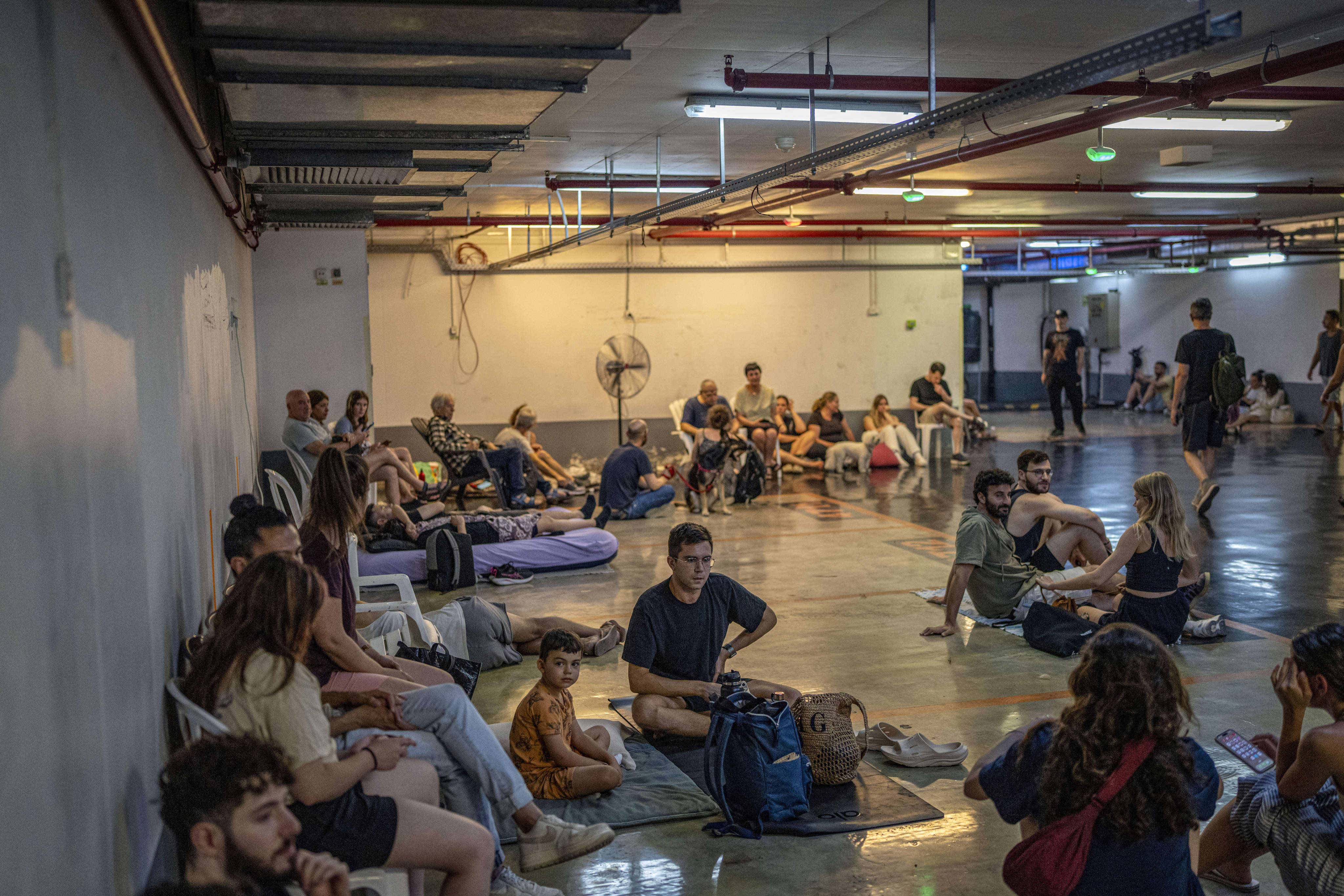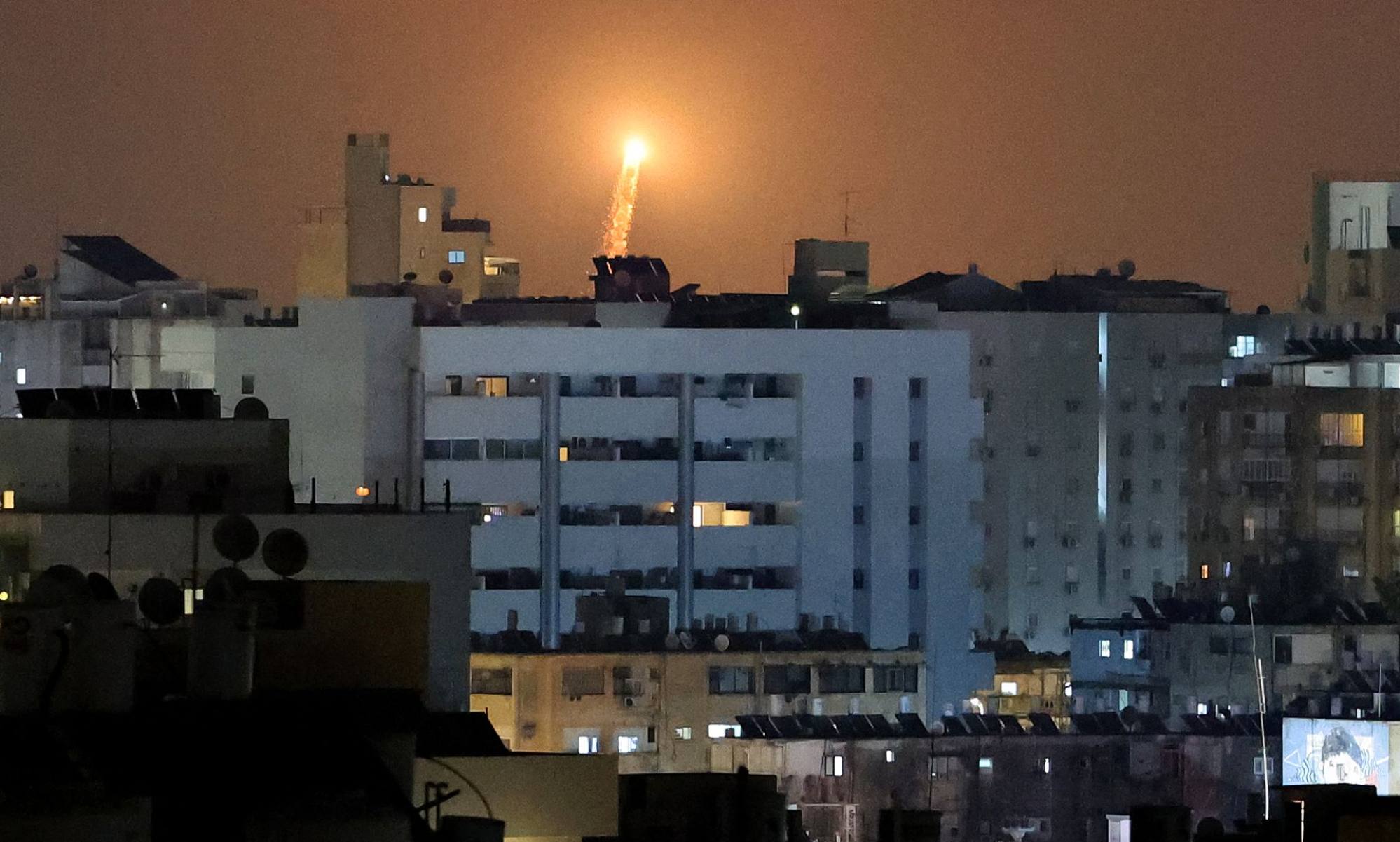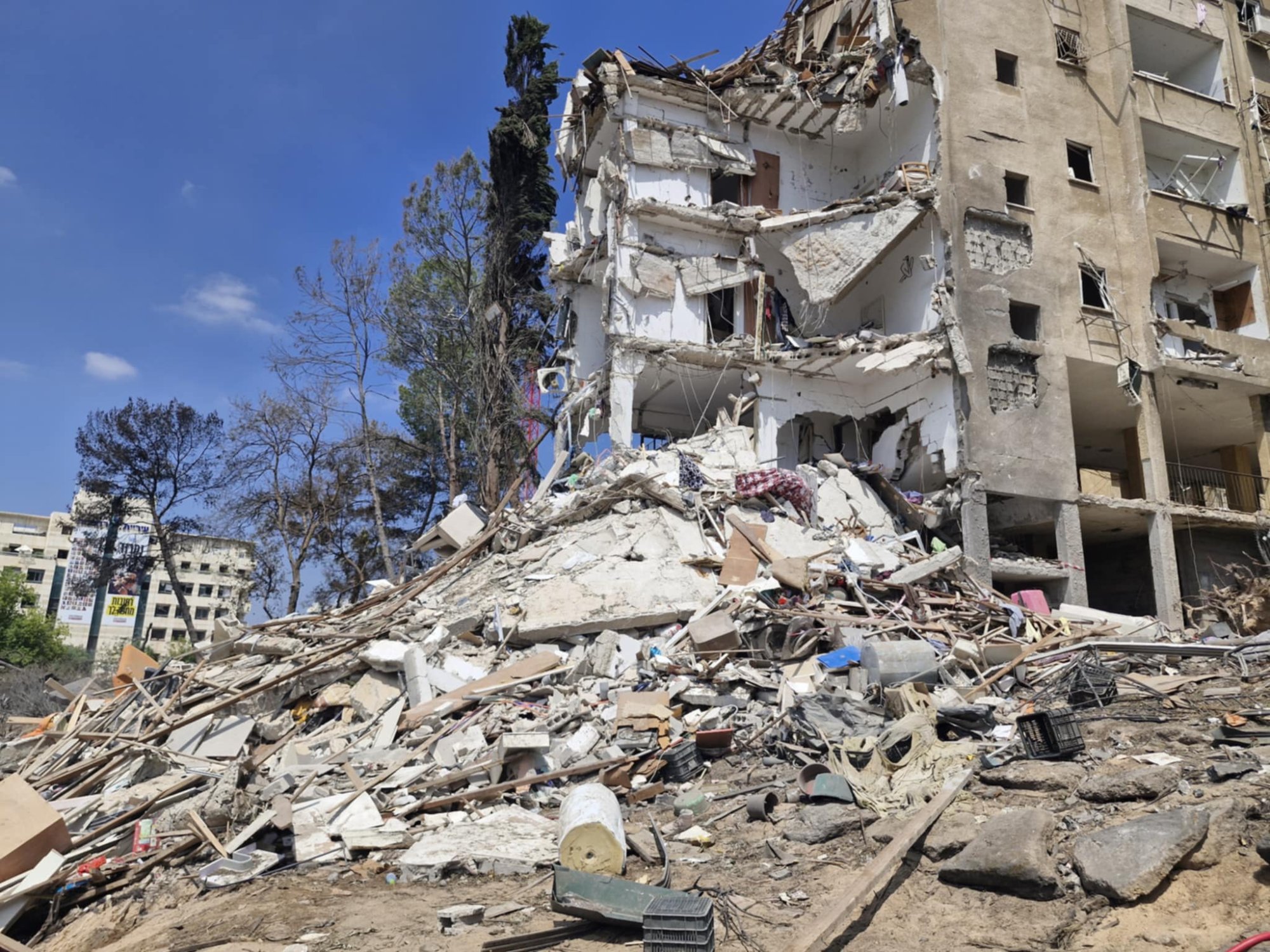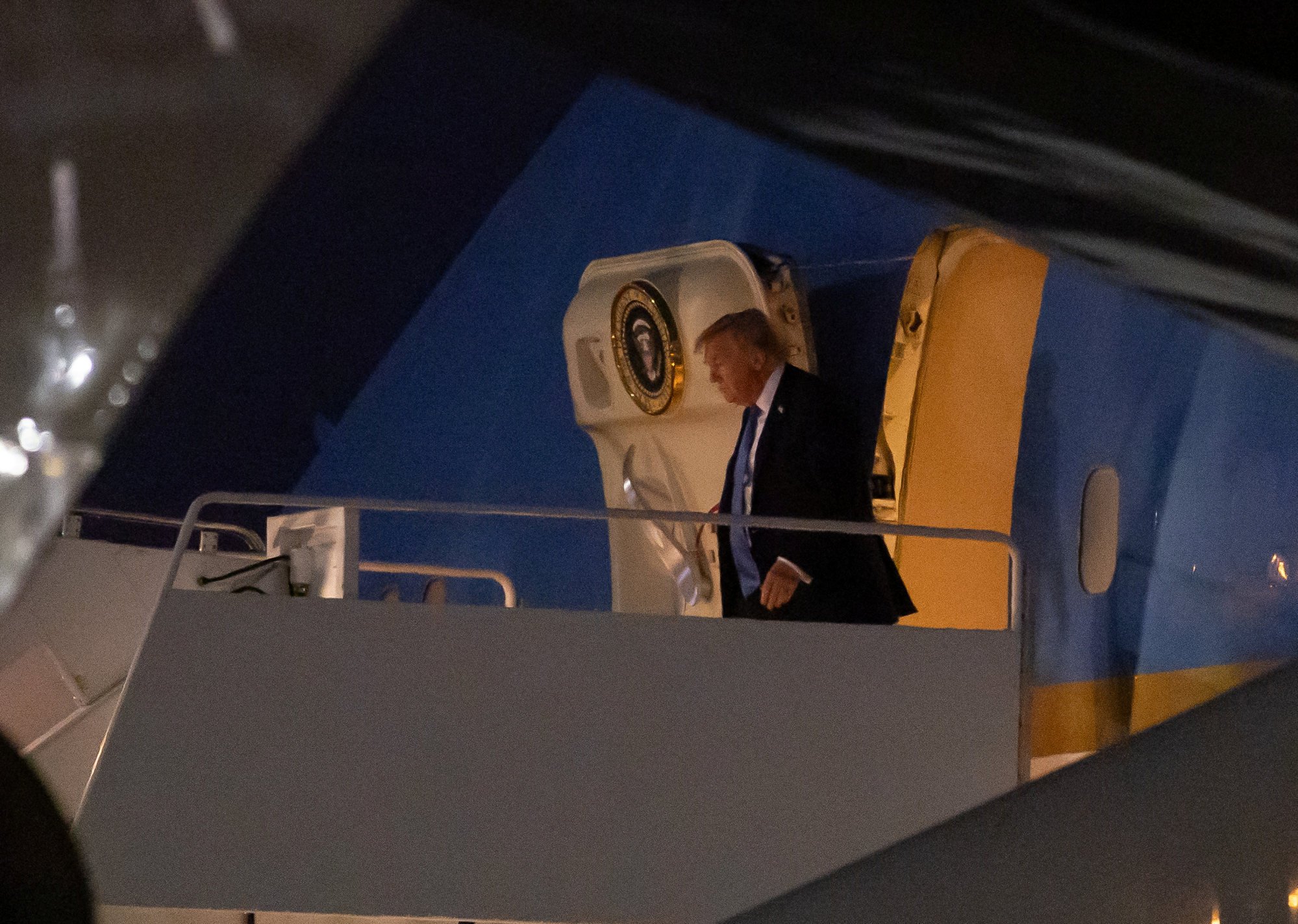Filipinos in Israel caught between duty and fear as Iran conflict escalates
As 75 per cent of overseas foreign workers are carers, worries about their wards and livelihood are holding most back, an advocate says

About 150 Filipinos in Israel have requested help from Manila to return as the conflict escalates with Iran. However, most of the 30,000-strong community, primarily domestic workers and carers, are reluctant to leave their wards behind.
The Philippine embassy in Israel revealed the number of repatriation seekers on Tuesday.
Migrant Workers Secretary Hans Cacdac told ABS-CBN News the same day: “By the very nature of their work, they’re caregivers, 75 per cent of OFWs [overseas foreign workers] are caregivers … They take care of their elderly patients. Some find it difficult to go home with their dedication to their work.”
Cacdac also said many Filipinos were concerned about losing their livelihood if they returned home, despite government help.

“[We have resolved the matter on financial earnings] because we provide them at least four to six months’ salary as financial assistance upon their return to stem them over. We also provide reintegration assistance,” he said. “We are providing the necessary means for people to come home. All it takes is to provide them the opportunity to be repatriated.”
The embassy was considering transporting the returning Filipinos to Israel’s land border with Jordan as the airspace remains closed, he said. “[But] with the biggest opportunity to fly out, we will do so.”
Dexter Pamintuan Datu, a carer and a member of is Filipino migrant labour group Migrante Middle East, however, said that the actual cash assistance repatriated Filipinos received upon returning home did not commensurate with four to six months’ pay.
Returning workers received a total of 125,000 pesos (US$2,190) from various agencies while the average wage of a Filipino carer ranges between 4,800 and 5,800 shekels (US$1,370 and US$1,655) per month.
“It’s not enough for us to start [anew] and not work abroad any more,” he told This Week in Asia.
About 30,000 Filipinos are in Israel. Some of them had listed themselves for repatriation before the attacks began on Friday.
“So far, 24 have manifested their wish to come home after the attack on Iran. This is a live count; it is increasing every day,” Cacdac said on Tuesday, when the tally was at 109.
An update by the Philippine embassy in Israel later that day showed that the number grew to 150. This Week in Asia has reached out to the embassy for comment.
On June 13, Israel launched attacks against Iran, killing top military commanders and nuclear scientists. The country also struck over 100 targets, including Iran’s military bases, nuclear sites and residential areas across the country.
The Philippines’ Department of Foreign Affairs (DFA) has urged both countries to de-escalate tensions in the Middle East.
“The Philippines is gravely concerned over heightened tensions in the Middle East region following Israel’s air strikes on Iran,” it said in a statement on Saturday. “With the welfare of the people of the Middle East and the Filipinos there in mind, the Philippines urges concerned countries to de-escalate and follow the path of peace.”
I would feel bad leaving my wardNeoly Murphy, a carer in Israel
Seven Filipinos were injured and nearly 50 have lost their homes in the attacks. One underwent emergency surgery and remains in critical condition, while another continues to recover from moderate to serious injuries at a hospital, according to the DFA.
Neoly Murphy, a carer in Israel, said she intended to stay for the time being. “I have no plans [to leave] yet. My workplace is still OK … I would feel bad leaving my ward,” she said in a radio interview on Tuesday.
Filipinos who have been working in Israel are used to attacks, carer Charlot Agustin David, who has worked in Israel for 17 years, told This Week in Asia.
David was one of the Filipinos displaced when a missile struck the home she shared with 10 other compatriots – including two who were discharged from the hospital after being treated for injuries – in Rehovot, a city 29km (18 miles) south of Tel Aviv.
She has been staying at a hostel provided by the Philippine government since Sunday, along with other Filipinos, and will soon be moved to a flat.

David said she was worried about finding a stable job that would be enough to support her family back in the Philippines if she returned home. “If there was a decent job that had good pay, other Filipinos and I would not have left to go abroad,” she told This Week in Asia.
“Even if the situation is scary, we choose to stay as long as the Israeli Defense Forces control the situation,” she said, adding that she has seen how Israel’s armed forces have handled conflict over the years.
Datu, who is based in Petah Tikva 10km (6.2 miles) east of Tel Aviv, said he would rather face danger in Israel than poverty in the Philippines.
“Maybe if I see that the strikes are increasing and they’re happening near my city, my decision to stay may change. It would depend on the actual situation on the ground. If I see that more strikes are happening near my area, I may prioritise my own safety.”
Usually, people were asked to enter bomb shelters about three to four times a day, he said. As the strikes usually happen at night, he and his neighbours would not be able to sleep. The attack on Petah Tikva on Monday was near his workplace.
“You have to be vigilant as the moment you receive an SMS from the Israeli army, you have to be ready as a rocket may land soon,” he said.
However, the carer said that he had no plans of returning to the Philippines any time soon. “I’m more scared of going home to the Philippines [and being] jobless. My family continues to rely on me for a lot of things,” Datu told This Week in Asia.
He believes that tensions in the Middle East have been worsening since first moving to Israel for work 13 years ago.
“It’s becoming more dangerous. Before, there were no casualties. But this week, we’ve seen buildings and houses hit by strikes. The fear is there, and people are more alert with every action,” he said, adding that there was panic buying the morning after Iran’s missile attacks first landed in Israel.

Rockets and words continue to go back and forth between the two long-time enemies as the air war enters its sixth day. The Israeli military said two barrages of Iranian missiles were launched toward Israel in the first two hours of Wednesday morning, hours after US President Donald Trump demanded the Islamic republic’s “unconditional surrender”.
Trump fuelled speculation about US intervention when he made a hasty exit from the G7 summit in Canada, where the leaders of the club of wealthy democracies were calling for a ceasefire.
Back in Washington on Tuesday, he demanded that Iran surrender and boasted that the US could easily assassinate Iran’s supreme leader. “We know exactly where the so-called ‘Supreme Leader’ is hiding. He is an easy target, but is safe there – We are not going to take him out (kill!), at least not for now,” he wrote on his Truth Social platform.
But although he met his National Security Council to discuss the conflict, the meeting ended after an hour and 20 minutes with no immediate public statement.
Additional reporting by Reuters, Agence France-Presse